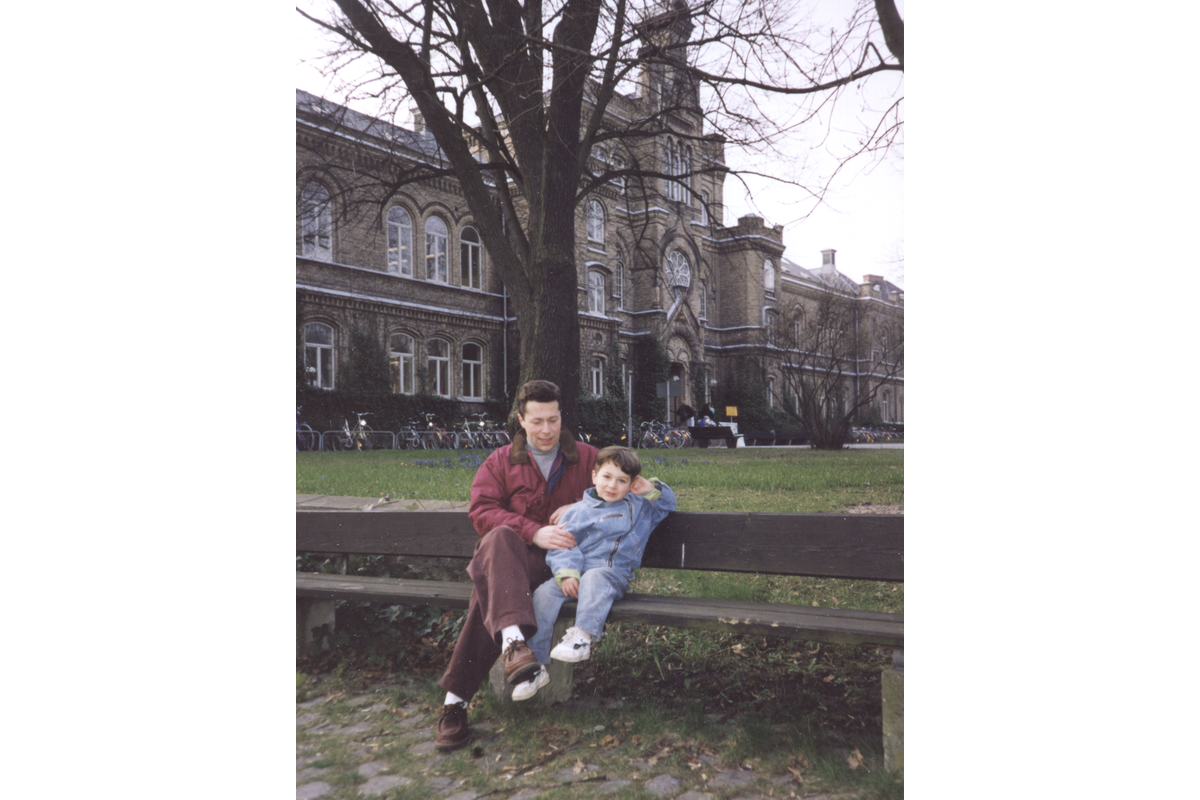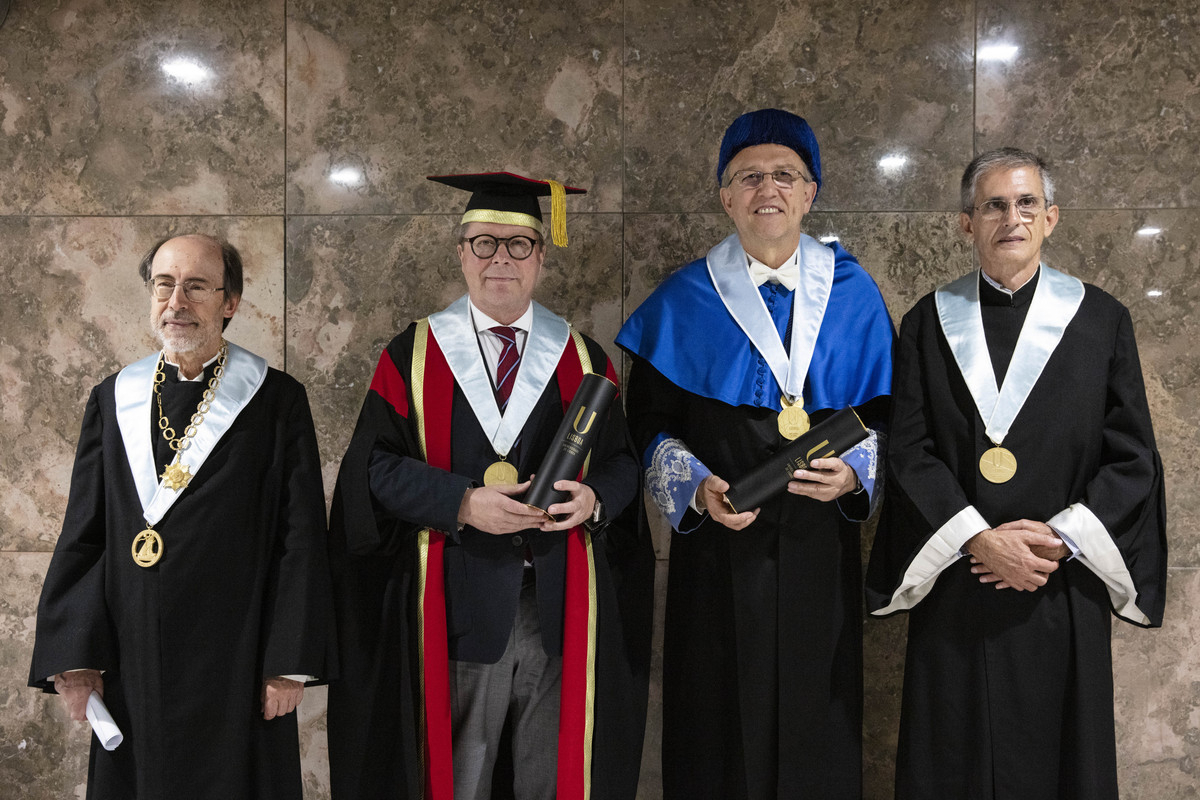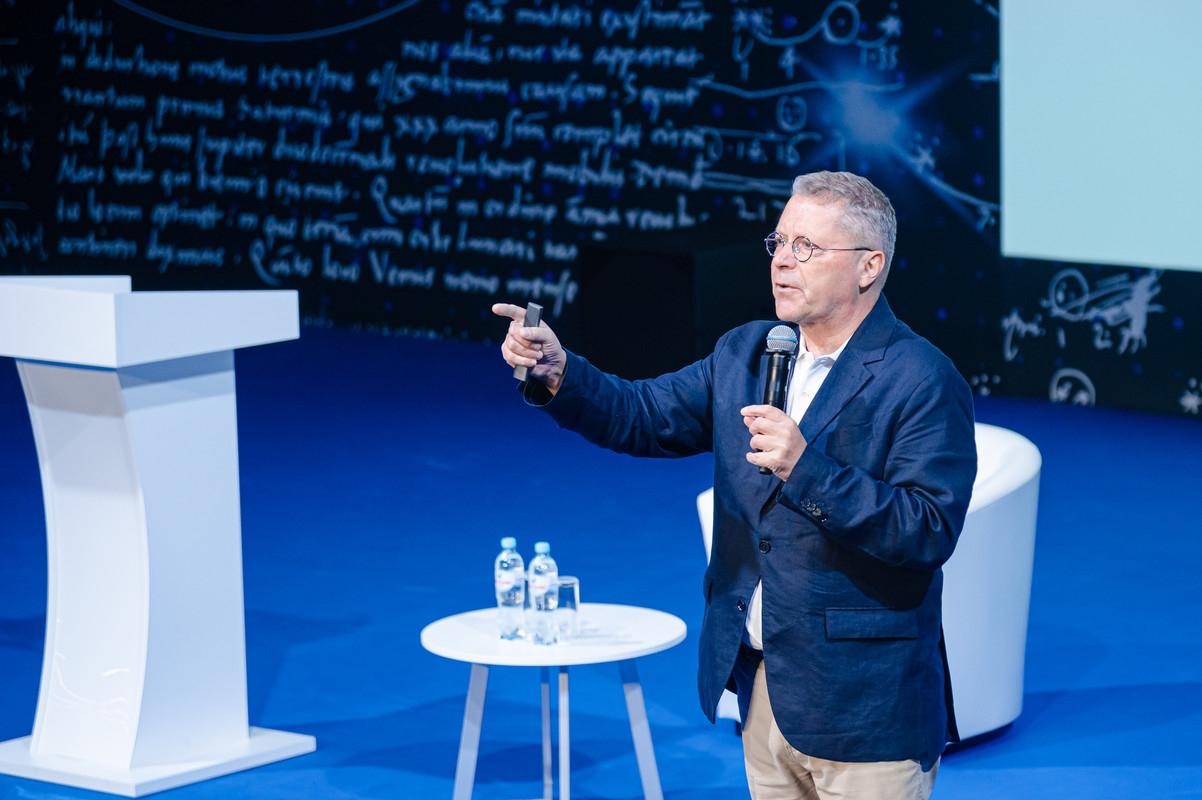Russian Science Foundation: Expertise: building a community of experts
Expert evaluation of research projects at the Russian Science Foundation (RSF) is grounded in the judgements of the professional scientific community. The RSF Expert Councils consist of publicly recognised, active, and productive researchers. They form a trusted community of specialists tasked with addressing critical issues in science and technology.

In our country at that time, there was no grant system in place. As a postgraduate student during the Soviet era, I did not really understand how resources were allocated. Funding for equipment and reagents seemed to fall from above or was somehow secured by the heads of research organisations — there was no competition or transparency. In contrast, Sweden had a well-developed system of grant support for scientific research, where every step required an application. For literally everything! If you planned to attend a conference, you had to submit an application and convince them how great you are.
In 2014, when the Russian Science Foundation was established, the immediate question was: "Where do we begin?" The Foundation had funds, and it was necessary to create a system for competitive distribution. To achieve this, the Russian Science Foundation turned to leading research organisations to identify scholars who could be trusted to develop an expert evaluation system. I was among those named and became one of the 15 members of the first RSF Expert Council, alongside another chemist, Academician Mikhail Alfimov.
We assembled a pool of experts — scholars who would evaluate grant applications. At that time, there were no elections, as there were no voters yet. We invited experienced individuals with backgrounds in the Russian Foundation for Basic Research (RFBR) or the Russian Humanitarian Science Foundation (RGNF), who understood the procedure of expert evaluation in science and research.

There is another crucial criterion to consider. Regarding the Russian Science Foundation, I am always reminded of a quote attributed to Louis XIV: "When I appoint someone to a high position, I gain 99 discontented people and one ungrateful individual." This sentiment can, to some extent, be applied to the Foundation’s work. In a competition where ten applications vie for one grant, it means nine people will be offended, and the one winner will likely complain about having to write a research report. This dynamic is inevitable and must be clearly understood. Hence, one of the RSF’s fundamental rules is that experts must be highly respected individuals. Otherwise, the situation could become disastrous: not only does one fail to secure a grant, but the decision is made by people they do not respect as scholars.
The first Expert Council wisely instituted a policy of rotation. It was decided that council members and section coordinators would serve no more than two consecutive terms. This approach ensures that any errors in candidate selection can be rectified within three years. Additionally, individuals may experience fatigue, leading to a decrease in perceptive acuity and enthusiasm. I myself was recently rotated out, and rightly so — rules are rules. Rotation helps maintain the high quality of expert evaluation and ensures continuity. Through this process, experienced coordinators and scholars new to research foundation work collaborate, energise each other, and learn from one another. When I left, my position in my scientific field was filled by another respected scientist.
The Expert Council is not a Masonic lodge. It is composed of scholars united by a common purpose and driven by enthusiasm for their work.
I do not know a single coordinator who shirks their responsibilities. Each expert feels a deep sense of duty to the scientific community that has chosen and trusted them. Sometimes, my colleagues in chemistry will call and say, "You there have...," to which I respond, "Not 'you', but we have!"
I once read Professor Hans Selye’s reflections on scientific creativity: "Why do people pursue science? The truth is that we are vain, very vain." I agree with this sentiment. Every scholar wants to be the first in their field. For society to progress, we need such ambitious individuals who continually strive for the top. Experts are no exception to this rule.
Ambition, however, is not everything. An ideal section coordinator, and even an ordinary expert, must be a multifaceted individual, combining several qualities. This person should be a prominent scholar with strong scientometric indicators and excellent organisational skills. It should be someone who can find compromise and avoid extreme views, and who never uses their position to settle scores or influence the scientific fate of colleagues through grant funding. Under no circumstances will the coordinators disclose the names of the experts. Otherwise, it would be challenging for reviewers to objectively evaluate projects and write reviews without bias or consideration of personal relationships. I always warned new recruits to the chemistry section, "Colleagues, do not breathe a word about what we are discussing here. These are sensitive matters that can sour moods and strain relationships."

The Foundation must address situations where ethical rules are violated, such as when individuals do not disclose family ties with grant applicants or co-authored papers to the Expert Council. Given my extensive knowledge of the scientific community in my field and my vast network of contacts, I am well-positioned to "catch" potential conflicts of interest. If an expert and a grant applicant are close friends, it is wise to avoid putting oneself in an uncomfortable position. I always advise my colleagues: "If you have any doubts, it is better to recuse yourself from evaluating a 'friendly' application." When we have encountered violations, such as a husband reviewing the application of his wife, who had a different surname, we warned the offenders and imposed penalties, including removal from the pool of experts.
Members of the Expert Council operate according to a clearly defined plan, where everything is mapped out six months in advance. This includes the start and end dates of the expert evaluation process, as well as the scheduled days for council and section meetings. For a meticulous coordinator, this approach is a blessing, as it allows for effective time management.
Vadim Kukushkin, Full Member of the Russian Academy of Sciences, Doctor of Chemistry, Professor of St Petersburg University, RSF grant receiver, Coordinator of the Chemistry Section of the RSF Expert Council for the Presidential Research Projects Programme (2018-2023).
In 2024, Vadim Kukushkin was elected Mendeleev Reader and conducted the 78th Mendeleev Readings. This honour is bestowed upon outstanding Russian scholars who have made significant contributions to chemistry and related sciences. Since 1941, Mendeleev Readers have included presidents and vice-presidents of the USSR Academy of Sciences and the Russian Academy of Sciences, full and corresponding members of the Academy, Nobel laureates, and distinguished professors.
Nine years of work at the Russian Science Foundation have flown by quickly. It has been a rewarding and engaging life experience, when I was surrounded by intelligent individuals whose professionalism and approach to life are truly impressive.
During this time, I have learned to be more restrained, to seek compromise, and to make the most balanced and well thought through decisions possible.
The awareness of working with highly intelligent people is both a pleasure and a means to rise above trivialities and troubles. This is what I appreciate most about the scientific world, which is now largely organised with the involvement of the Russian Science Foundation.
Even with extensive experience, there is always more to learn and improve upon during the expert evaluation process. Now, that I have rotated out, I feel fully justified in helping my colleagues and my university — offering advice on how to approach and write grant applications. I am glad to be of service to the University and, especially, to early-career researchers.

